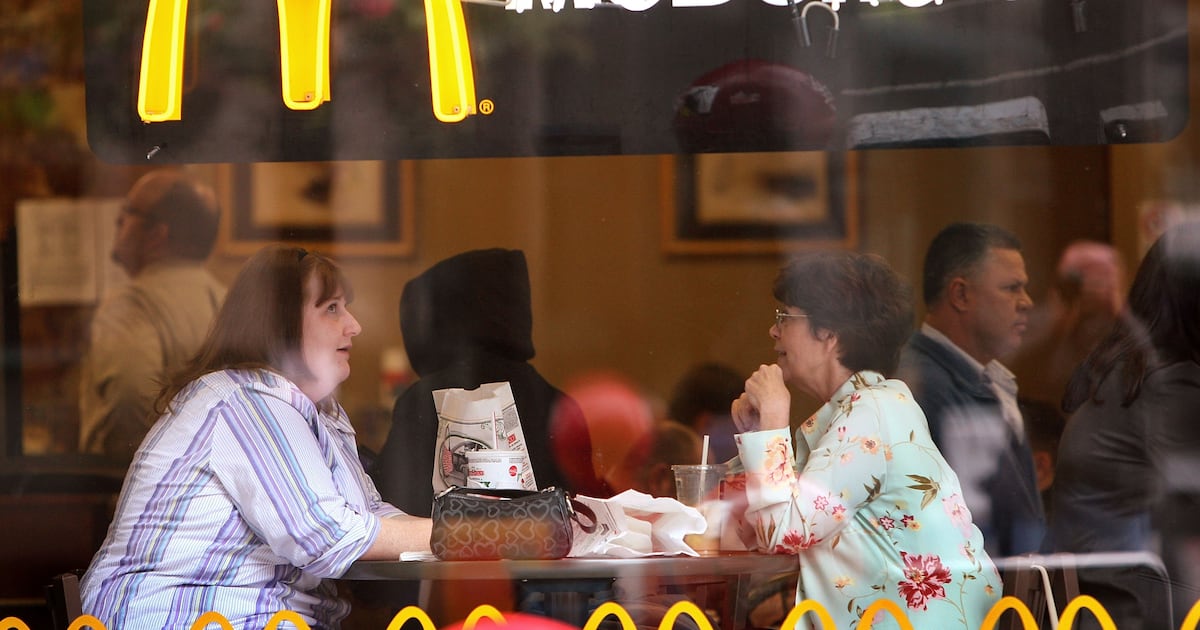Opinion
Barra Roantree: There’s nothing ‘prudent’ about a budget that cuts Vat on Big Macs and Michelin-starred meals

Read more on post.
With budget day fast approaching, senior Government figures have been filling the airwaves and column inches setting out their stall.
Among these are Minister for Finance Paschal Donohoe and Minister for Public Expenditure Jack Chambers, who have been preaching the virtues of “prudent management of the public finances”.
After five years during which permanent spending net of tax changes has risen by almost 10 per cent per year on average, a Damascene conversion to such prudence would be welcome.
All the signs, however, are that this conversion is illusory and more of an Augustinian plea: grant me prudence, Lord, but not yet.
According to the Government’s published plans, spending next year will increase by around €8 billion while tax cuts will reduce revenues by €1.4 billion. This amounts to a budget package that will raise spending net of tax changes by 6.5 per cent – far faster than the sustainable growth rate of the economy.
Such rapid spending rises risk overheating the economy and stoking faster inflation just as it is subsiding. Estimates by the Central Bank suggest that prices are already 2 per cent higher than they would have been had spending grown in line with the Government’s own – never obeyed and now discarded – fiscal rule.
That amounts to a reduction in purchasing power of around €1,000 per year for the average household.
Of course, all this assumes that the Government sticks to the plans it announces in the budget – something which it hasn’t done for many years. For example, Budget 2025 set out plans for spending to increase by €3 billion this year. Instead, it is on track to rise by €7.6 billion, with overspends in capital, health and social protection expenditure the prime culprits.
Concerns about the credibility of the Government’s plans lie not only in its apparent inability to control spending. Government figures have also suggested their “solemn commitment” to cut VAT on hospitality will be delayed until the summer so as to “create more room for tax cuts” in the budget. This would involve only counting half the €600-million-plus annual cost of the measure for budget purposes and ignoring the longer-run fiscal consequences entirely.
[ Budget 2026 plans will limit response to future economic shocks, committee hearsOpens in new window ]
By the same flawed logic, a tax cut introduced on December 31st next year would be free, whatever it cost in the years after. Such basic fiscal innumeracy compounds the economic illiteracy of a measure that will disproportionately benefit the large or expensive hospitality businesses that need it least, such as McDonald’s or a Michelin-starred restaurant.
Suggestions that multinational fast-food chains could somehow be excluded from the cut are a recipe for disaster that will merely serve to complicate the tax code and keep tax lawyers busy for years.
Cutting VAT on hospitality will also serve to further erode our already fragile tax base, which is increasingly reliant on corporation tax receipts. These are highly concentrated, with three-quarters paid by a handful of American companies and two-fifths by just three. And it is thanks only to these corporation tax receipts that the Government expects to run a surplus of revenue over expenditure.
Stripping out the receipts that the Department of Finance itself considers to be temporary windfalls, the Government would this year be spending €8 billion more than it collects. This leaves our fiscal fortunes acutely exposed to the whims of Donald Trump and the vagaries of US politics.
As the ESRI warned this week, measures to reduce the price or relocate the production of pharmaceuticals sold in the United States could have a profound impact on the profits of US pharma firms operating in Ireland, and so their corporation tax payments. Instead of responding to these risks by broadening our tax base, successive budgets have narrowed it. Cuts to the Universal Social Charge (USC) and Local Property Tax (LPT)– introduced in the aftermath of the financial crisis as measures to broaden the base – have reduced annual tax revenues by at least €3.5 billion.
Such cuts go directly against the core recommendations of the Commission on Taxation and Welfare that Donohoe himself established as part of the last government. Ignoring such advice is, of course, the prerogative of the Minister and the Government.
But rather than prudence, it demonstrates an affinity for the “when I have it, I spend it” school of economic policy exemplified by the former minister for finance Charlie McCreevy.
So too does the Government’s plan to “recalibrate its fiscal strategy” and cut back spending in the event of economic conditions worsening seriously.
Committing to ramp up expenditure if the good times continue, but row back if they get worse, is precisely the sort of procyclical policy that exacerbated boom-and-bust over the 2000s.
As the Fiscal Advisory Council – set up to prevent the mistakes of the past – has argued, slower spending growth and fewer tax cuts now would provide greater scope to step in and boost demand should any of the (many) economic threats on the horizon materialise.
Prudent management of the public finances does not prohibit spending increases or new initiatives. It just requires that the Government does not try to do everything, everywhere, all at once.
Ministers have said the focus of this budget will be on infrastructure, for which there is a strong case. Research suggests we have a substantial shortfall in our levels of infrastructure compared to other high-income countries, particularly related to housing, transport and electricity.
Addressing these deficits will require sustained investment, and means doing less elsewhere. If infrastructure is the priority, then the Government should act as though it is.
The budget cannot be prudent, prioritise infrastructure and cut VAT on Big Macs.
Barra Roantree is director of the MSc in Economic Policy at Trinity College Dublin. He was a member of the last government’s commission on taxation and welfare.









